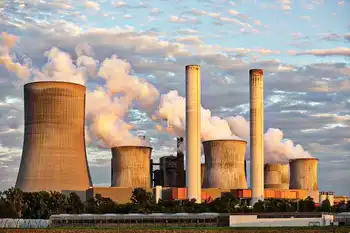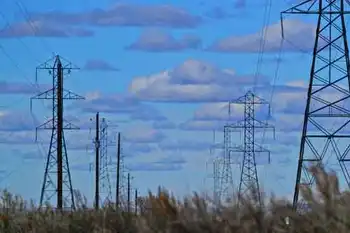Africa's worst polluter aims to clean up its act
CAPE TOWN, SOUTH AFRICA - South Africa, the continent's worst polluter, hopes to lend momentum to the battle against climate change by seeking ways to clean up its act and offering a good example to other developing nations.
Africa's economic powerhouse belches millions of tonnes of carbon dioxide into the atmosphere each year, much of it from coal-fired power plants that still provide most of its energy.
Now, the government has asked the Energy Research Center (ERC) at the University of Cape Town to develop long-term greenhouse gas mitigation scenarios.
"If South Africa can show it is feasible socio-economically that we can depend less on fossil fuels, it might encourage countries such as India and China," said Guy Midgeley, a scientist at South Africa's National Biodiversity Institute.
"That would be a tremendous contribution from the developing world."
South Africa and other developing countries were not set targets under the United Nation's 1997 Kyoto Protocol, aimed at cutting emissions from power plants, factories and cars - seen by most scientists as the main causes of global warming.
The omission of developing nations, like China, was one reason given by President Bush for pulling the United States out of the Protocol in 2001.
The Protocol runs out in 2012 and the question of what to do after that, and how to incorporate Kyoto outsiders, will be discussed at the U.N.'s annual talks reviewing climate change from November 6-17 in Kenya.
The United Nations says progress is urgently needed, both on a global deal beyond 2012 and in working out how to help vulnerable developing nations adapt to projected changes such as more droughts, floods and rising sea levels.
The ERC's Harald Winkler said government officials, civic groups and industry heavyweights like electricity producer Eskom and synthetic fuel producer Sasol were taking part in the talks about cutting emissions.
Organized business in South Africa has already signed a memorandum of understanding with the government to improve energy efficiency by 15 percent by 2015.
"While there might not necessarily be agreement on a single scenario, there would be better understanding of what different stakeholders think," Winkler said.
The U.N. meeting in Nairobi follows a British report by former World Bank chief economist Nicholas Stern which warned of an economic catastrophe if global warming was not tackled now.
Stefan Raubenheimer, a facilitator on the ERC project, said the Stern report added urgency to South Africa's work.
"South Africa is in a tough position, and will need bold and creative solutions, backed by political will from the top. And we are not alone in this: the world must develop a plan for China and the U.S.," he said.
"In the end if we fail, the runaway emissions in those countries will mock our best efforts," he said.
South Africa has more at stake than just its reputation. The government has projected that climate change could limit rain in the already dry country - endangering farmland and reducing food output in a region which sees frequent food shortages.
According to figures from the International Energy Agency, coal-dependent South Africa - one of the most heavily industrialized countries in the developing world - released some 318 million tons of carbon dioxide in 2003.
Neighboring Namibia released a measly 2.5 million tons while oil-rich Nigeria, with roughly three times South Africa's population, only released about 49 million tonnes.
In that year the United States spewed out 5,729 million tons of carbon dioxide, the major greenhouse gas.
Sue Taylor, program coordinator at the Worldwide Fund for Nature-South Africa, said that despite the ERC project it appeared the South African government was adopting a business-as-usual approach.
"They seem to be peddling slowly as if they are trying to stave off moving from a coal-based economy," she said.
Plans to cut emissions could also run adrift on efforts to expand electricity services. Many rural areas are still cut off from the national network, 10 years after the end of apartheid.
The government has announced plans to build more coal-fired power stations, but efforts are also under way to explore alternative energy sources.
In Cape Town, a project to market wind-powered "green" electricity to companies and consumers has started, while solar-powered water heating units are planned in another environmentally friendly project in the low-income township of Ivory Park between Johannesburg and Pretoria.
"If we continued relying mostly on coal, that's really not good news for the climate.... It will come back to haunt us. We'll see temperatures rise, more malaria and many other impacts," Winkler said.
Related News

Drought, lack of rain means BC Hydro must adapt power generation
VANCOUVER - BC Hydro is adjusting its operating plans around power generation as extended heat and little forecast rain continue to impact the province, a report says.
“Unpredictable weather patterns related to climate change are expected to continue in the years ahead and BC Hydro is constantly adapting to these evolving conditions,” said the report, titled “Casting drought: How climate change is contributing to uncertain weather and how BC Hydro’s generation system is adapting.”
The study said there is no concern with BC Hydro being able to continue to deliver power through the drought because there is enough water at its larger…




